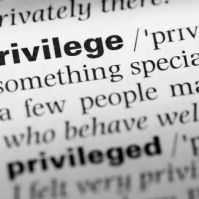 A diverse church is a healthy church. People of all ethnic, racial, gender, sexual orientation and economic backgrounds should be welcome at worship services. Most churches go out of their way to ensure that everyone knows they are a valued part of the community.
A diverse church is a healthy church. People of all ethnic, racial, gender, sexual orientation and economic backgrounds should be welcome at worship services. Most churches go out of their way to ensure that everyone knows they are a valued part of the community.
Unfortunately, many people who deal with conditions or temperaments that are outside the narrow parameters of what society tends to value often suffer in silence, and the reasons behind their pain are not always internal. External pressures to conform to arbitrary norms or expectations can lead to people who don't fit those boxes feeling like outcasts who are misunderstood and unwanted. The church must examine its complicity in these interactions and work to communicate welcome to everyone.
Mental Health Issues
There are many instances in which a mental health concern may affect how someone engages with the church:
- Anxiety
- Depression
- Bipolar disorder
- Attention disorders
- Sensory processing issues
- Mood disorders
- Schizophrenia
If someone who has been diagnosed with one of these conditions has a history of also being involved in faith communities, they have probably met with hopefully well-intentioned but often hurtful advice. Although things are slowly changing, negative, uninformed stereotypes about mental illness are still prevalent in many churches today. The idea that people with these disorders only need to have more faith or pray more often gets in the way of actual treatment that could help them. While praying can offer a bit of comfort, expecting people to rely on prayer alone to meet every need is not reasonable.
Learning Differences
No matter how much most of the family benefits from being part of the church body, people with learning differences often face frustrating circumstances. This is particularly common with children who are dyslexic, dysgraphic or gifted. The volunteers who teach their spiritual formation classes are often not certified educators who have the knowledge they need to recognize the signs of these differences and make the appropriate adjustments to their lessons to accommodate them. They may simply dismiss the children as disruptive and ask their parents to take them out of the class.
Teaching others is a big responsibility, so it logically follows that instructors in any class your church offers will need to have the tools to fulfill it. Anyone who is willing to serve in this capacity should undergo a training program where the potential need for adaptation is addressed. Encourage teachers to work with parents to make the classes more beneficial for everyone.
Personality Diversity
Committees wouldn't get very much done if everyone wanted to be the leader or tried to talk over each other all the time. Likewise, it would take a long time for projects to get off the ground if no one wanted to lead or speak up. However, while it is easy to understand the importance of different personalities, that doesn't always make it easy to get along. This issue is exacerbated when the church itself holds up certain personality traits, such as extroversion or boldness, as preferable to others.
A better approach is to try to match people with the service options that fit their personalities rather than asking them to perform in a way that does not come naturally to them. For example, highly sensitive persons tend to be particularly gifted at empathy. As a result, they are often acutely aware of the needs that are going unmet in the church, the community and the world. It's in the church's best interest to value their input when it comes to designing outreach projects that will have the most impact.
Making your church a diverse place where everyone feels welcome doesn't just happen automatically. By being sensitive to differences, even those that are hard to see, you can help those who may not be included anywhere else know they are wanted.



